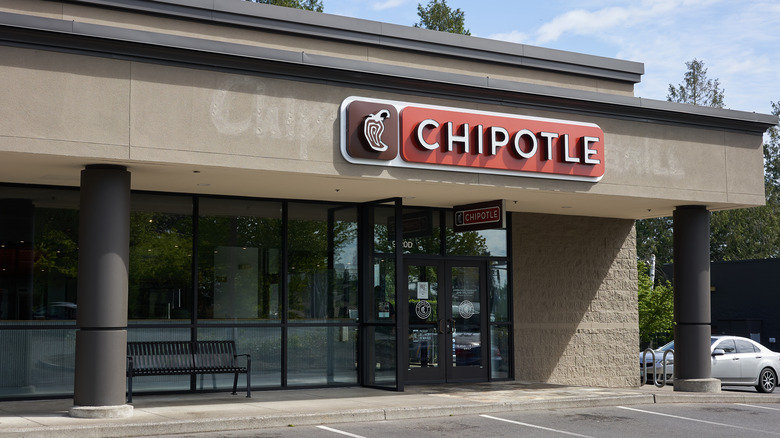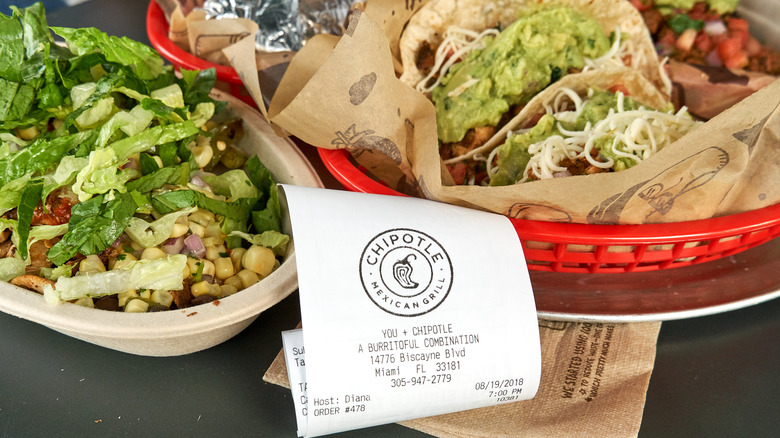The Truth About Chipotle's Beef
Chipotle is a staple in many people's diet. The claim of "real" ingredients, dietary collaborations (as with Whole30), and rewarding employees (per CBS News) make it almost a no-brainer when looking for a fast casual meal solution.
So, is Chipotle really as good for you as they claim to be? It turns out, the truth behind where they get their beef proves that the chain takes care to serve its customers quality meat and live up to the chain's claims and the public's expectations. Chipotle announced (via Business Wire) that the brand continues to source responsibly raised meat, including its beef, from animals that are not given antibiotics or added hormones.
Chipotle has been looking at several new protocols, including allowing animals that need antibiotics for health reasons to receive them. The company decided against that practice, however. Instead, the animals can (and should) be treated for their ailment, but must then be removed from Chipotle's supply chain.
Why this strategy?
"We decided to start serving meat from animals that have never been given antibiotics or added hormones more than a decade ago," said Steve Ells, Chipotle founder, chairman and co-CEO, in a press release. (via Business Wire). "And we continue to be committed to the elimination of antibiotics that are used to promote growth in livestock being raised in confinement operations."
The decision seems to pay off. According to Good Housekeeping, the steak is actually one of the healthiest options on the menu. Additionally, in an interview with Pure Wow, nutritionist Wendy Leonard explained that the transparency the fast casual chain gives with its ingredient list — including the beef products — is important for the health of its customers.
She noted that the restaurant's practices allow customers to not only see what's in their food, but are able to know what's in their meals without having to Google ingredients or fillers they may not recognize. "Everyone can read the ingredient list without looking up the name of a 'hard-to-pronounce' chemical preservative or additive," she said in the interview.

